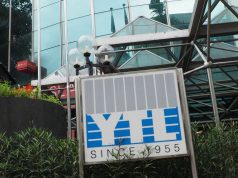(Singapore, 27 September 2023) Some 75% of local households can expect their monthly water bills to increase by less than S$10 starting from April 2025.
This is the primary outcome of a new plan by the Singapore government to incrementally raise the local tap water fee in two phases, as announced by the Ministry of Sustainability and the Environment.
According to the plan, the local water price will undergo revisions on April 1, 2024, and April 1, 2025, to account for the rising costs associated with water production and supply.
Currently, the price of potable water stands at $2.74 per cubic meter. To cover the increased expenses related to water production and supply, the potable water price will see a gradual increase of 50 cents per cubic meter (equivalent to 1,000 liters of water). This adjustment will be carried out in two stages: an initial 20-cent increase per cubic meter from April 1, 2024, followed by a further 30-cent increase per cubic meter from April 1, 2025.
This represents an approximate annual increment in water prices of 2.5% since the last price revision. The phased approach, with a smaller increase in the first year, is designed to assist households and businesses in adapting to the price adjustment while allowing ample time for the adoption of water conservation measures.
For customers utilizing NEWater, the price for NEWater will also experience an increase of 17 cents per cubic meter, following a similar two-phase implementation.
With the full price revision set to take effect in April 2025, three out of four households will witness an increase of less than $10 in their monthly water bills before government assistance.
Similarly, three out of four businesses, including small and medium enterprises, will experience an increase of less than $25 in their monthly water bills. It is worth noting that water bills account for less than 2% of an average household’s expenditure, while for most businesses, which encompass electricity, gas, and water expenses, they make up less than 5% of their overall operational costs.
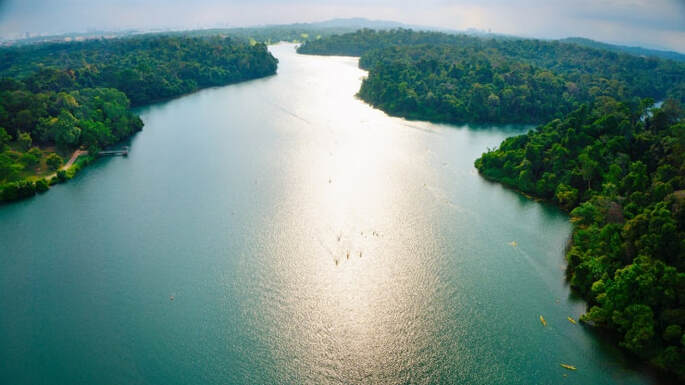
The Ministry emphasized the importance of water security in Singapore, considering water as a strategic resource that individuals, businesses, and the Government must safeguard. Through long-term planning and consistent investments in vital water infrastructure, Singapore has established the Four National Taps to ensure a secure and dependable water supply that can meet the needs of the population and economy.
“In Singapore, water is priced to cover the full cost of its supply and production, reflecting the cost of producing the next drop of water. This appropriate pricing of water also encourages water conservation by households and industries, fostering sustainable growth in water demand,” it stated,
Despite active cost mitigation measures by PUB and its contractors, the cost of producing and supplying water has significantly increased since the last price revision in 2017 due to external cost pressures, as outlined in the announcement.
Average electricity market tariffs have risen by approximately 37%, adding to PUB’s energy costs, particularly as they increasingly utilize energy-intensive sources like NEWater and desalination to meet growing water demand. Construction costs across the industry in Singapore have also surged by 35%, with even greater increases for specialized projects undertaken by PUB, such as tunnelling and pipeline projects in highly urbanized areas. Additionally, PUB’s expenses for essential chemicals in water and wastewater treatment have risen by about 33% due to inflationary pressures and supply chain disruptions, while maintenance expenses have increased by 18% due to higher manpower costs for contracted services.
Singapore’s water demand is projected to nearly double by 2065 in alignment with economic and population growth. Climate change will further exacerbate the strain on local catchment and imported water sources, which are weather-dependent.
To ensure the security and sustainability of the water supply, the government will continue to make long-term investments in water infrastructure and further develop weather-resilient water sources such as NEWater and desalinated water, despite their higher energy costs.
The Government said it will also provide additional financial support to help alleviate the impact of the water price increase and address other cost-of-living concerns, particularly for lower- and middle-income households. Detailed information will be announced by the Ministry of Finance in the near future. PUB will collaborate with the Ministry of Trade and Industry and relevant authorities to discourage profiteering by businesses.
Furthermore, all 1-, 2-, and 3-room households will have the opportunity to apply for e-vouchers under the Climate Friendly Households (CFH) Programme to offset the costs of purchasing water-efficient shower fittings. In the coming year, enhancements will expand the program to cover more water-efficient fittings, promoting water and energy savings and providing households with annual utility savings ranging from $50 to $150.
Businesses are also encouraged to utilize PUB’s recently enhanced Water Efficiency Fund, which supports companies in implementing water efficiency projects, including water recycling and water-efficient systems and technologies. By doing so, businesses can reduce their water demand and achieve sustained cost savings in their operations.





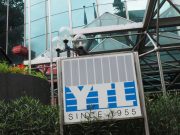


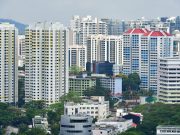
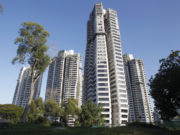
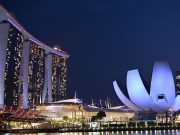
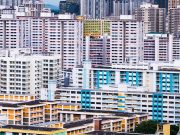






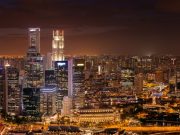



-3_1-180x135.jpg)

















